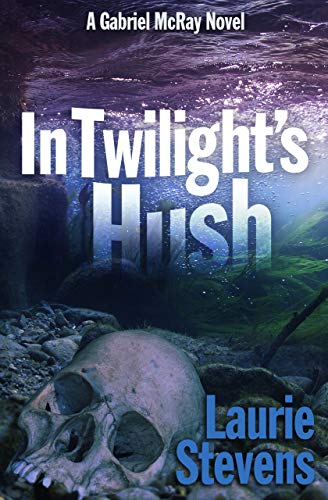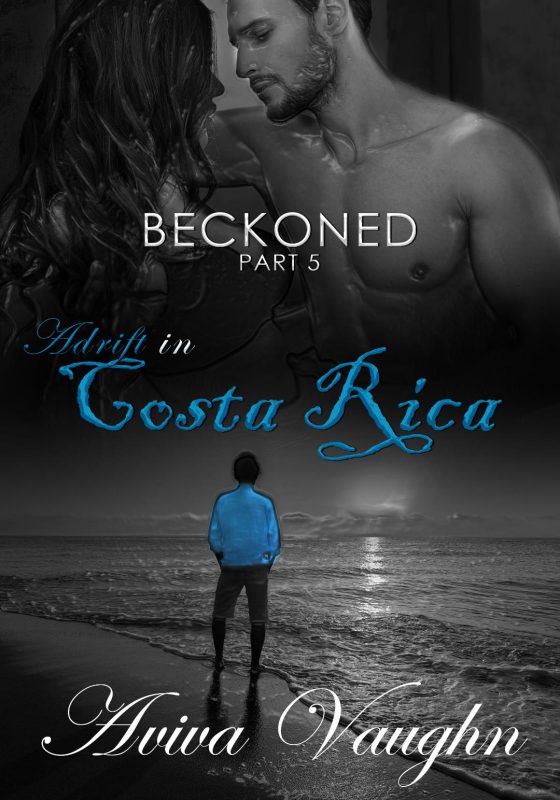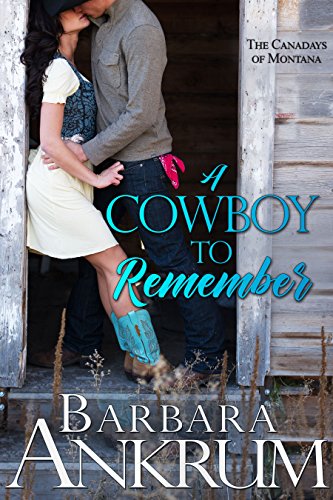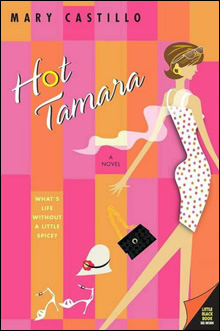First Step
May 30, 2024 by Dianna Sinovic in category Quill and Moss by Dianna Sinovic, Writing tagged as Feathers, First step, wings
From the fourteenth floor of Kaitlin’s apartment building, the view of the atrium was breathtaking, even gut-wrenching, especially if you were terrified of heights, which Kaitlin was. Because of that, she lived on the second floor, just high enough to feel the thrill of looking down onto the atrium’s floor, but not paralyzing.

Floor 2 was also safe enough for her son, Zeke, all of seven. He wasn’t a climber, so she didn’t have to worry about him falling from the overlook. He was content to peer through the balusters, or on tip-toe, peek over the top rail. Occasionally, he would beg her to take him up to the fourteenth, the top floor, so he could ooh and aah at the building’s lobby floor far below.
“We’ve already been up there once this month,” she said, when he asked for another look only a week after they’d ridden to the top that May. “Other people live up there. We don’t want to be bothering them, or the management will restrict who can visit.”
“Oh, Mom!” He pouted and ran to his room.
What she didn’t tell him was that she frequented the top floor during the day when he was at school. On a break from her home-based editing work, she would ascend to the upper floor and fantasize about standing on the top rail, spreading her imaginary wings and gliding down. In her dream-state, she pictured landing at the bottom with a whisper touch of her feet.
One morning, a woman with frizzy red hair surprised Kaitlin by appearing at her side without warning, making her jump. “You sure come up here a lot.” The woman was early fifties, with frown lines, freckles, and green eyes. “If you’re on a suicide mission, I’d rather you take it somewhere else.”
Kaitlin felt her face grow warm, in opposition to the coldness of the stranger’s voice.
“I just love the view,” she said, quickly turning to walk to the elevator.
“Well, so do I. That’s why I leaped at the chance to rent up here.” The woman watched her narrowly. “No pun intended. If you like it so much, tell management you want the next opening on fourteen.”
Not willing to admit to her acrophobia to this woman, Kaitlin opted for a gesture of friendliness. “I’m Kaitlin, down in 203.” She thrust her hand out and looked the woman straight in the eye. “I didn’t mean to intrude on your floor.”
The woman blinked at her for several moments, and the frown on her forehead smoothed away. She glanced down and then back to Kaitlin, and slowly extended her own hand to shake. “Chris,” she said. “You’re not intruding. We’re all tenants.”
Chris hesitated, and Kaitlin checked her watch. “I’ve got to run,” she lied. “My son will home from school soon, and I’ve got a work project to finish.” She would come back another time, when Chris wasn’t there to snoop.
Before she could turn again for the elevator, Chris stopped her. “Wait. I have something I think you could use. I’ll be right back.”
Kaitlin stood at the railing, idly running her fingers along the metal. She heard a rustle of softness and spun around.
“Here.” Chris held an armful of . . . feathers? The bundle overflowed her arms and trailed to the floor. Mostly grays and whites, but with flashes of teal. “I haven’t used these in several years. They’ll fit you; we’re both about the same size.”
“What is this?” Kaitlin reached out and stroked the feathers. They were synthetic and strong. “A costume?”
“Better.” Chris shook out parts of the bundle. “Try them on. I’ll help you.”
Together, with Kaitlin following Chris’ instructions, they fastened the pieces to Kaitlin’s arms and torso. When every bit had been strapped and buckled in place, Chris smiled, a sadness in her eyes. “They’re perfect on you. I want you to keep them.”
“To do what with?” Kaitlin felt awkward in the outfit, like a circus performer in a Big Top act. “Am I supposed to be a chicken?”
Chris laughed. “Not a chicken. More of an albatross or eagle, a bird with a broad wingspan. I could see it in your eyes. You want to glide down from here. This will let you slowly spiral your descent.”
“You’re kidding.”
“Not a bit.” Chris straightened a section, tightened a strap. “Try them.”
Kaitlin’s stomach churned; this interaction couldn’t be real. “You’ve used these . . . wings?”
“Don’t worry. They’ll support you fully. The hardest part is the first step. After that, easy as pie.” She considered for a moment. “Watch out for the fountain in the center, though. Aim to land anywhere but that.”
A deep panic set in, and Kaitlin fought to calm her breathing. Part of her wanted to run for the elevator, ripping off the feathers as she went. The other part, despite the terror of free fall, wanted to witness the sensation. She had imagined this for weeks on end, and now it was happening.
“You’re sure these work?” Kaitlin half-hoped Chris would burst out laughing with a “fooled you!” response.
“Let me help you up.” Chris didn’t seem to have heard her. She stood at the rail, her hand out. “Remember to extend the wings fully, grip the supports firmly with each hand. Relax your hips and legs. Keep your head up so you can see where you’re going.”
Kaitlin took a deep breath and flexed her arms. “Got it.” Far below, the tiered fountain splashed and gurgled. A few tenants chatted at its periphery, unaware of the miracle poised to launch above them.
She stepped off and was airborne.
Featuring Kidd Wadsworth, Author of the Month
May 28, 2024 by Kidd Wadsworth in category Featured Author of the Month, Infused with Meaning by Kidd Wadsworth tagged as Featured Author of the Month, kidd wadsworth
Kidd Wadsworth writes to bring to life our magical, fire-breathing world. She believes we are super heroes. It’s time we put on our capes.
You can read Kidd’s monthly column, Infused with Meaning, here on the 25th of every month. More information about Kidd is found on her website, make sure you take the time to read her “about me” section.
A selection of books that include Kidd’s short stories.
Dreamcatcher by Neetu
May 26, 2024 by Neetu Malik in category Poet's Day by Neetu Malik tagged as dreamcatchers, dreams, Neetu, passing storm, water lilies
Dreamcatcher
she gathers dreams that were
shattered in the last storm
fragments burnt and charred
when lightning struck, turned
an armful of hopes to ash—
she laces them into a willow hoop
torrential rain doused the fire;
shards and broken bits remained—
she spread them upon fine muslin
woven with fibers she had spun
on the wheel of an aching heart
until the storm passed and the sun
stretched out its golden arms
to weave those dreams back together
into different shapes
draped in morning dew
they shone again.
© Neetu Malik
Some of Neetu’s Books
The Well Ordered Life by Kidd Wadsworth
May 25, 2024 by Kidd Wadsworth in category Infused with Meaning by Kidd Wadsworth tagged as critique, first scene, messy life, vote
Many years ago I dreamed up a prissy, meticulously neat, rigidly moral, character called Rebecca Howard.
Rebecca demands order at work, at home, even in her religion. A devout Catholic, she stands, sits and kneels precisely on cue. When Rebecca encounters her free living neighbor, an opera singer wannbe, her life becomes decidedly messy. She finds herself laughing—and living, again. But with all this life, this realness, the painful memories of the death of her one and only love return—and Rebecca doesn’t want to remember.
Liking the premise, I wrote the opening scene. But my critique group hated it. Earlier this week I reread the scene. I still like it. So, I’m asking you, my blog readers, to tell me what you think. A simple “thumbs up” or “thumbs down” in the comment section would be great. Thanks.
THE WELL-ORDERED LIFE OF REBECCA HOWARD
Forty-two year old Rebecca Howard had fifteen hats artistically arranged on an antique bookcase in her living room. She had seen such a display in a recent issue of Martha Steward Living. Rebecca Howard had exceedingly good taste, which was of course to say that she was adept at conforming to whatever the current fashion happened to be—in this case, hats. They were really quite beautiful. One was a sunbonnet. The kind your sweet grandmother might have worn as she skipped through a meadow of buttercups in the Spring of 1921 while hunting for the errant blueberry to bake in a muffin.
Every morning Rebecca woke to the annoying sound of a digital alarm clock she had purchased twenty-two years ago. But this morning, the heinous thing did not buzz. Indeed, it was never to buzz again. And no one, especially not Rebecca Howard, ever inquired why.
Instead Rebecca woke—seventy-six minutes late—to the sound of music, stunningly beautiful music, the notes of which floated on the air as if they had wings. Entranced, she rose and silently slid open her balcony door. For a moment she let herself breathe the melody.
Her apartment’s balcony jutted up against her neighbor’s. Since the day Rebecca had moved in, the apartment next door had been empty. So Rebecca had never created a screen between her balcony and her neighbor’s. Two doors down, Martha Hughes had isolated her outdoor space with a grouping of potted cacti. Next door to Rebecca, on her right, Harper Creech had hung a mural hand-painted by the mountain people of Peru, but to her left Rebecca had—nothing. So when at last she opened her eyes, she had an unobstructed view of the back of a young man, perhaps twenty-four, tall, slender, standing on the balcony next door, greeting the morning with song, butt-naked.
“Ahhh!” she cried out.
Unfortunately this caused the young man to turn around.
Please Vote and . . .
Happy Writing,
Kidd
Some of Kidd’s short stories are in the following anthologies:
A DANCE OF WORDS BY VERONICA JORGE
May 22, 2024 by Veronica Jorge in category Write From the Heart by Veronica Jorge tagged as dance., music, Veronica Jorge, words, Write
Hispanola, which means the “Spanish island,” became the first Spanish settlement in America. It is my mother’s native country and today we know the eastern section of the island as the Dominican Republic; a fertile land abundant in mines and minerals and rich in a great variety of fruits, vegetables, grains, and flowers, where the sun shines brightly year round.
The merengue, the country’s traditional music, embraces you throughout the island for dancing is an entirely social activity independent of holidays or festivals. Any gathering includes dancing because Dominican’s don’t just listen to music, they live it. Emotionally, the merengue celebrates life wherein you partake of the rhythms of love, family and friendship. The most skilled dancer moves in unity with their partner, as one.
My mother,  Celina Antonia Luna de Jorge, (isn’t that lovely? Like a song in itself), left her beautiful, beloved island, and part of her heart, when she came to America at the age of seventeen. Like most of our ancestors, her family traveled to America in the hope of a better future. I’m happy to say that she found it. (She had me!).
Celina Antonia Luna de Jorge, (isn’t that lovely? Like a song in itself), left her beautiful, beloved island, and part of her heart, when she came to America at the age of seventeen. Like most of our ancestors, her family traveled to America in the hope of a better future. I’m happy to say that she found it. (She had me!).
Mom is most fully herself, most fully alive when she is surrounded by her family and cooking us all of the traditional delicious foods of her country. She fills and satisfies us with her peace and joy. And like the savory aromas that waft through the air, she makes our hearts swirl to the rhythms of her warmth and love.
And that’s what I want my writing to be like; a dance of words wherein writer and reader move in sync and taste the flavors of love, friendship, loss and new found purpose, joy and laughter. Writing that, in spite of sorrowful events or hardships, celebrates life and fills the reader with hope that today is indeed worth living.
Happy Mother’s Day, Mom! I love you!
See you next time on June 22nd.
Affiliate Links
A Slice of Orange is an affiliate with some of the booksellers listed on this website, including Barnes & Nobel, Books A Million, iBooks, Kobo, and Smashwords. This means A Slice of Orange may earn a small advertising fee from sales made through the links used on this website. There are reminders of these affiliate links on the pages for individual books.
Search A Slice of Orange
Find a Column
Archives
Featured Books
IN TWILIGHT’S HUSH (A GABRIEL MCRAY NOVEL BOOK 4)
Detective Gabriel McRay investigates a cold case from 1988 involving a missing teenager named Nancy Lewicki.
More info →BECKONED, PART 5: ADRIFT IN COSTA RICA
How do you heal a broken heart?
More info →BECKONED, PART 2: FROM BATH WITH LOVE
Can fire and ice both survive?
More info →A COWBOY TO REMEMBER
Can Jake convince Olivia to risk it all one more time . . .
More info →Newsletter
Contributing Authors
Search A Slice of Orange
Find a Column
Archives
Authors in the Bookstore
- A. E. Decker
- A. J. Scudiere
- A.J. Sidransky
- Abby Collette
- Alanna Lucus
- Albert Marrin
- Alice Duncan
- Alina K. Field
- Alison Green Myers
- Andi Lawrencovna
- Andrew C Raiford
- Angela Pryce
- Aviva Vaughn
- Barbara Ankrum
- Bethlehem Writers Group, LLC
- Carol L. Wright
- Celeste Barclay
- Christina Alexandra
- Christopher D. Ochs
- Claire Davon
- Claire Naden
- Courtnee Turner Hoyle
- Courtney Annicchiarico
- D. Lieber
- Daniel V. Meier Jr.
- Debra Dixon
- Debra H. Goldstein
- Debra Holland
- Dee Ann Palmer
- Denise M. Colby
- Diane Benefiel
- Diane Sismour
- Dianna Sinovic
- DT Krippene
- E.B. Dawson
- Emilie Dallaire
- Emily Brightwell
- Emily PW Murphy
- Fae Rowen
- Faith L. Justice
- Frances Amati
- Geralyn Corcillo
- Glynnis Campbell
- Greg Jolley
- H. O. Charles
- Jaclyn Roché
- Jacqueline Diamond
- Janet Lynn and Will Zeilinger
- Jaya Mehta
- Jeff Baird
- Jenna Barwin
- Jenne Kern
- Jennifer D. Bokal
- Jennifer Lyon
- Jerome W. McFadden
- Jill Piscitello
- Jina Bacarr
- Jo A. Hiestand
- Jodi Bogert
- Jolina Petersheim
- Jonathan Maberry
- Joy Allyson
- Judy Duarte
- Justin Murphy
- Justine Davis
- Kat Martin
- Kidd Wadsworth
- Kitty Bucholtz
- Kristy Tate
- Larry Deibert
- Larry Hamilton
- Laura Drake
- Laurie Stevens
- Leslie Knowles
- Li-Ying Lundquist
- Linda Carroll-Bradd
- Linda Lappin
- Linda McLaughlin
- Linda O. Johnston
- Lisa Preston
- Lolo Paige
- Loran Holt
- Lyssa Kay Adams
- Madeline Ash
- Margarita Engle
- Marguerite Quantaine
- Marianne H. Donley
- Mary Castillo
- Maureen Klovers
- Megan Haskell
- Melanie Waterbury
- Melisa Rivero
- Melissa Chambers
- Melodie Winawer
- Meriam Wilhelm
- Mikel J. Wilson
- Mindy Neff
- Monica McCabe
- Nancy Brashear
- Neetu Malik
- Nikki Prince
- Once Upon Anthologies
- Paula Gail Benson
- Penny Reid
- Peter Barbour
- Priscilla Oliveras
- R. H. Kohno
- Rachel Hailey
- Ralph Hieb
- Ramcy Diek
- Ransom Stephens
- Rebecca Forster
- Renae Wrich
- Roxy Matthews
- Ryder Hunte Clancy
- Sally Paradysz
- Sheila Colón-Bagley
- Simone de Muñoz
- Sophie Barnes
- Susan Lynn Meyer
- Susan Squires
- T. D. Fox
- Tara C. Allred
- Tara Lain
- Tari Lynn Jewett
- Terri Osburn
- Tracy Reed
- Vera Jane Cook
- Vicki Crum
- Writing Something Romantic
Affiliate Links
A Slice of Orange is an affiliate with some of the booksellers listed on this website, including Barnes & Nobel, Books A Million, iBooks, Kobo, and Smashwords. This means A Slice of Orange may earn a small advertising fee from sales made through the links used on this website. There are reminders of these affiliate links on the pages for individual books.




























































